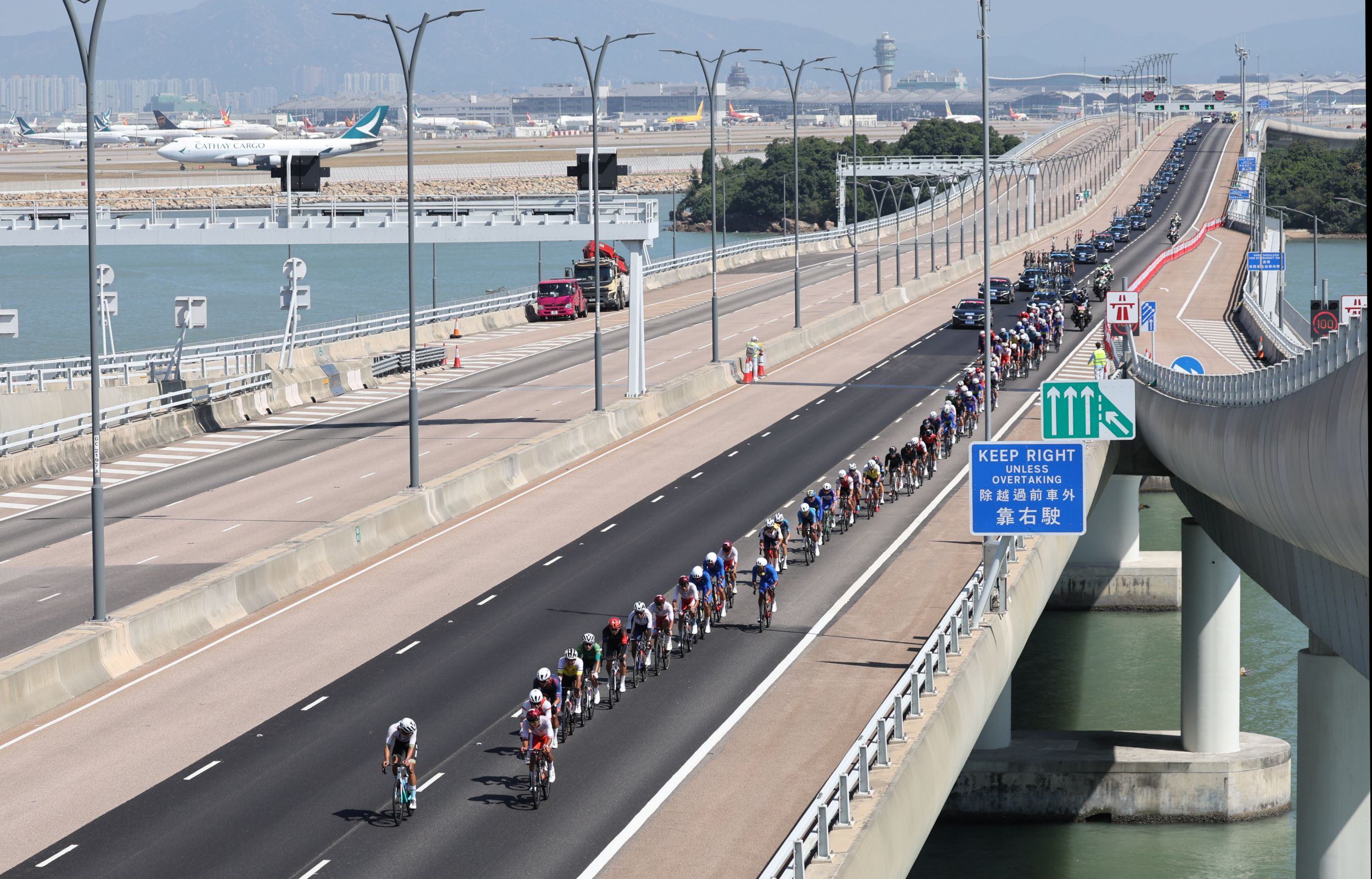
GUANGZHOU - For the first time, Guangdong, Hong Kong and Macao have joined hands to host China's premier multi-sport event, fostering closer ties across the Greater Bay Area and demonstrating fresh vitality under the "one country, two systems" principle.
Opening on Nov 9 in Guangzhou, capital city of Guangdong province, and running through Nov. 21, the 15th National Games underscores enhanced cross-border mobility and closer technological and cultural ties.
It is a valuable opportunity for Guangdong, Hong Kong and Macao to explore new models of cooperation under the "one country, two systems" policy, said Fang Zhou, research director of the Hong Kong-based One Country Two Systems Research Institute, noting that the event has the potential to further help connect resources and inject new possibilities into the Greater Bay Area's development.
Seamless connections
The Hong Kong Special Administrative Region (SAR) government has set up 16 dedicated self-service e-channels, allowing registered National Games participants to complete clearance procedures in just seven seconds simply by face scanning -- with no physical documents required.
About 5,000 participants are expected to use such arrangement, the first time visitors will be able to complete the entire border check process using facial recognition technology, which will greatly enhance efficiency, according to an official with Hong Kong's Immigration Department.
The men's road cycling race started in Guangdong's Zhuhai on Saturday and charted a 230-km route that looped through Macao and Hong Kong. Meanwhile, a marathon will see runners competing on a route between Shenzhen in Guangdong and Hong Kong.
ALSO READ: Historic cross-border cycle race connects Guangdong, HK, Macao
Notably, under an innovative pre-clearance and closed-loop arrangement introduced by the Hong Kong SAR government, athletes can maintain full speed through border crossings without stopping or slowing down.
To tackle cross-region regulatory and communication challenges, the organizing committee of the Games set up a multi-level liaison system to coordinate national and regional resources.
An estimated 6,000 athletes from the mainland will compete in Hong Kong and Macao, while more than 3,000 from the two SARs will travel to the mainland. Streamlined arrangements will help participants and spectators alike commute easily across the regions.
Hong Kong's West Kowloon Station has opened special shuttle services for the spectators, while Macao has introduced a spectator bus pass.
Tech, cultural integration
During the Games' torch relay in Shenzhen, a humanoid robot steadily carried and passed the flame, marking the first appearance of a robot torchbearer in the history of China's National Games.

"Taking the torch from a robot face-to-face felt truly sci-fi and magical," exclaimed Wang Yuning, a torchbearer who received the flame next.
Cutting-edge tech is ubiquitous at the venues of the Games. In Guangzhou, over 300 autonomous vehicles are in action, providing smart, green transit between venues. In Hong Kong, drones are used to survey Games venues and generate 3D digital maps, providing precise support to police deployments.
Also, many of the innovations have witnessed cross-region tech collaboration, with around 40 percent of the core technologies for the 15th National Games originating from Hong Kong. More scientific and technological achievements developed in Hong Kong are applied in the mainland market.
ALSO READ: National Games opening ceremony to blend tradition, tech
For instance, a startup incubated by a Hong Kong university's Guangzhou institute developed a precise indoor-positioning solution. The system improves accuracy to within two meters, allowing spectators and athletes to get real-time navigation inside venue complexes by simply scanning a QR code, said Luo Huawei, who worked in the company.
"A growing number of technologies developed in Hong Kong and applied in the mainland are now being put into use," said Gao Min, dean of the Fok Ying Tung Research Institute of Hong Kong University of Science and Technology, adding that the 15th National Games serves as an excellent showcase to promote both industry-academia-research collaboration and technological integration between Hong Kong and Guangdong.

Across competition venues and beyond, volunteers from Guangdong, Hong Kong and Macao are helping to tell a story of youth connection and shared growth in the Greater Bay Area.
"Joining the volunteer team gives me a strong sense of belonging and pride," said a Hong Kong volunteer.
READ MORE: Tech and sports unite at National Games
Beyond the Games itself, young people across the region are connecting through basketball, badminton, and lion and dragon dances, turning sports into a bridge for friendship and shared culture.
"Co-hosting the 15th National Games marks a major chance for Hong Kong to further align with the nation's overall development and enrich 'one country, two systems,'" said Eric Chan Kwok-ki, chief secretary for administration of the Hong Kong SAR government.
"It will help young people from Hong Kong better know the nation's overall development and the mainland cities across the Greater Bay Area, and deepen their sense of national identity," he noted.


